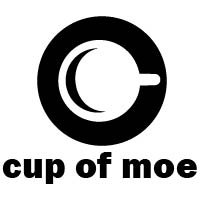We may earn money or products from the companies mentioned in this post.
The video game industry is booming, and there are a lot of neat trends. Virtual reality is seeing greater adoption, cross-platform development has been simplified thanks to powerful and adaptable engines like Unity, Unreal, and the Cryengine, and games have evolved into eyecandy. With VR and 4k making our games more realistic, the line between reality and play becomes blurred. Unfortunately, there’s also a trend that we don’t like to talk about, or really like to discuss depending upon the crowd: the treatment of women in gaming.
Media critic Anita Sarkeesian has been very vocal on the subject. Sarkeesian debuted the highly successful web series Tropes vs. Women in Video Games, where she explores the depiction and treatment of females characters in games. You don’t have to be a gamer to know the inaccurate representation and caricatures of women which pepper video games. Some of the more prominent examples stem from blockbuster titles like Rockstar’s “Grand Theft Auto” series, but it’s not just major studios that stereotype females. It’s prevalent throughout many games, from “GTA” and “Assassin’s Creed” to “Tomb Raider” and “Dragon’s Crown.”
Games often feature violence, objectification, and hypersexualization of female characters, which Sarkeesian’s series highlights. Her talks include “Damsels in Distress,” a look at powerless women in games, and “Women as a Background Decoration,” which explores the trope of female characters who are dehumanized. Unfortunately, this trend isn’t unique to in-game ladies. Many female developers, designers, and critics have met extensive persecution. Gamergate as it was dubbed culminated in a horrifying display of hate directed at Sarkeesian, as well as developers like Zoe Quinn and Brianna Wu. Quinn, Wu, and Sarkeesian each received threats of physical violence to themselves and others, among a slew of degrading and sinister harassment.
This trend isn’t relegated to gaming, though arguably the video game industry has sadly exhibited some of the most damning behavior. A recent article by film critic and pop culture guru Craig D. Lindsey analyzed actresses treatment in Hollywood, and the discrepancies between their male counterparts and roles. The game industry has risen to the level of film, generating enormous profits, with projects ranging from small indie titles to AAA blockbusters.
Even outside of the gaming space, female developers have unfortunately met a lot of discrimination. Most recently, the hashtag “I Look Like an Engineer” went viral when OneLogin engineer Isis Wenger was critiqued by the general public as “too pretty” to be an engineer. The sad reality is that sexism still exists, and is particularly flagrant in the development and gaming world. Thankfully, pioneers like Anita Sarkeesian are raising awareness about in-game stereotypes, and social media campaigns show that all developers aren’t men hammering away at keyboards with Cheeto-dust encrusted fingers. Still, we’ve clearly got a long way to go.
This post may contain affiliate links. We are a participant in affiliate programs such as the Amazon Services LLC Associates Program, an affiliate advertising program designed to provide a means for us to earn fees by linking to Amazon.com and affiliated sites. However, all products are thoroughly tested and reviews are honest and unbiased.

